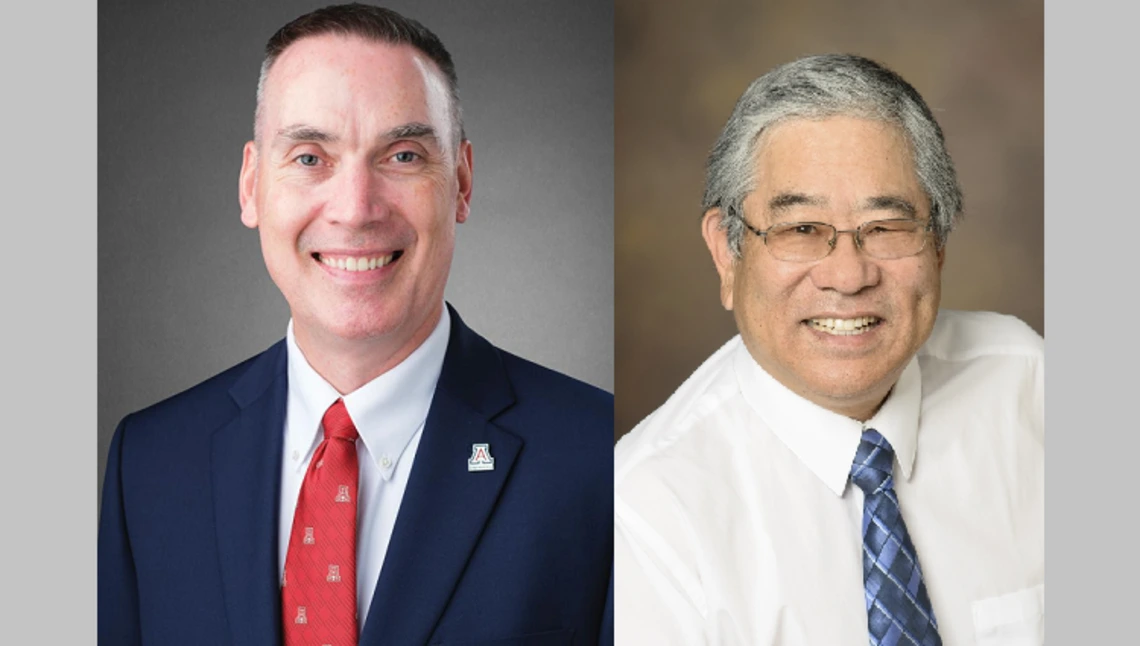Van Dyke, Matsunaga Named to National Academy of Inventors

College of Engineering associate dean of research and BME research professor Mark Van Dyke and professor of medical imaging and adjunct professor of BME Terry Matsunaga are among three University of Arizona faculty members recently named fellows of the National Academy of Inventors. The NAI Fellows Program highlights academic inventors who have demonstrated a spirit of innovation in creating or facilitating inventions that have a tangible impact on quality of life, economic development and the welfare of society. The NAI fellow designation is the highest professional distinction for academic inventors.
With a career that has spanned industry and academia, Van Dyke is committed to discovery and innovation, and seeing inventive ideas make an impact. His research has led to significant contributions to tissue engineering and trauma treatment, introducing the use of keratin-based biomaterials as treatments for burns, hemorrhage, bone healing and peripheral nerve repair. He has 40 U.S. patents and has been an author on more than 160 scientific publications as well as multiple books and chapters.
"I am especially honored to receive this distinction because NAI acknowledges not only the quantity of an inventor's work but, importantly, the translation and impact," Van Dyke said. "I look forward to serving in the role of NIA fellow and to helping support the U.S. innovation enterprise."
Matsunaga's research focuses on using microbubble technology for cancer imaging and drug and gene delivery. He developed Definity microbubbles, a technology that uses perfluorocarbons that can be injected during an echocardiogram to help diagnose problems in the heart. He played a key role in advancing what became known as perflutren microspheres to Phase I clinical trials, which culminated in the first human studies of a new intravascular ultrasound contrast agent called MRX-115. Matsunaga is listed on 17 patent applications and is an inventor on 23 issued patents. His inventions have been licensed to two startups: Nanosonic Bioreagents and Triangle Biotechnology.
"It is indeed an honor for myself, my family, my department for supporting me throughout, and all those students and colleagues who were there to turn those ideas into realities," Matsunaga said. "I am also very thankful to all at the University of Arizona for giving me the opportunity to spawn research creativity that has led to this award. Frankly, it is they who deserve all the credit."
